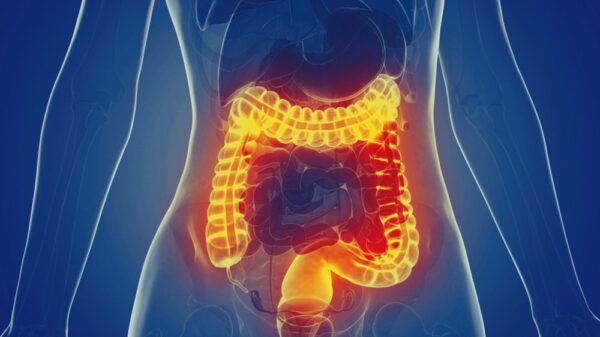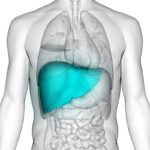If your gut is a mess, then your overall health may feel like it’s completely out of whack. The gut is a cornerstone of health that impacts the entire body. As we get older and enter later adulthood, you may notice that the gut is even more sensitive to diet changes, and your body may be more vulnerable to imbalances in the microbiome. If you’ve had enough of feeling crummy, bloated, and just “off,” you’ve come to the right place. Here we explore the gut-healing diet, including the best foods for gut health, the worst foods for gut health, and healthy habits that support optimal gut health.
Why Is It Important to Fix My Gut?
Having a healthy gut is about more than just bloating and a little gastrointestinal distress. Eating the right foods for your gut can mean that you drastically lower your risk of certain diseases impacting the digestive system like irritable bowel syndrome, inflammatory bowel disease, and celiac disease. Taking care of your gut as you age is particularly important since poor gut health increases the risk of developing diseases like diverticulitis, gallbladder disease, acid reflux disease, insulin resistance, cardiovascular disease, and fatty liver disease. Better gut health is also linked to improved mental health, weight loss, clearer skin, and hormonal balance.
How Do I Detox My Gut?
Doing a gut cleanse doesn’t require anything radical, like a crash diet or liquid diet. Instead, it requires thoughtful diet changes as well as a personalized plan that fits your biochemical tendencies.
Best Foods for Gut Health
1. Sauerkraut
Did you know that this German staple is actually a lifesaver when it comes to gut health? Kimchi, a Korean staple food, is similarly lifesaving when it comes to supporting gut health. Fermented foods like sauerkraut and kimchi are packed with probiotics that help support the growth of good bacteria in the digestive system. Regularly eating sauerkraut or kimchi can help ease symptoms of an unbalanced gut and support healthy gut microbiota like lactobacillus and bifidobacteria.
2. Fruits and Veggies
It seems like fruits and veggies are healthy for nearly every ailment. Fresh produce and whole foods are packed with fiber that feeds good bacteria in the gut. Plus, fruits and vegetables are high in polyphenols, which help lower inflammation and oxidative stress in the gut and throughout the body, making the body less reactive.
3. Leeks and Onions
Foods like leeks, onions, asparagus, and kale are rich in prebiotic fiber that feeds the good bacteria in the body. Prebiotic foods contain inulin, which is difficult for the body to break down. Instead, they provide food for good gut flora that lives in the digestive tract. These bacteria feed on the fiber and product anti-inflammatory byproducts that travel throughout the body and promote overall health.
4. Water
Water is underrated when it comes to the health benefits for the digestive system. Staying hydrated helps keep the digestive system moving and helps cleanse the digestive tract. Aim to drink between 2 and 3 liters of water on a daily basis.
5. Whole Grains
Whole grains are well known for their benefits for gut health. Whole grains like brown rice, buckwheat, quinoa, whole wheat, and millet are packed with fiber that supports a balanced gut. The one caveat is that if you are sensitive to gluten or have celiac disease, it’s important to avoid wheat products, which contain the protein gluten.

Worst Foods for Gut Health
The worst foods for gut health are those that support the proliferation of bad bacteria in the gut and upset the delicate balance of the gut microbiome. If you’re striving for a healthy gut, aim to limit or eliminate these foods.
1. Fried Foods
Fried foods wreak havoc on gut health. Fried foods are packed with saturated fats and trans fats that are difficult to digest and can cause bloating and pain in the abdominal area. Fried foods upset the balance of the bacteria in your gut.
2. Animal Products
The digestion of red meat, poultry, and dairy produces a harmful inflammatory byproduct called trimethylamine N-oxide that can increase systemic inflammation. Steering clear of most animal products and sticking to a primarily plant-based diet is the healthiest thing to do for your gut. Plus, the saturated fat present in full-fat meat and dairy products is harmful to the gut and can cause inflammation that triggers acid reflux, heartburn, and gallbladder symptoms.
3. Added Sugars
Added sugars have been artificially separated from their original source and added back into processed foods. Excess sugars feed bad bacteria in the gut and upset the careful balance in the microbiome. On top of that, added sugars spike blood glucose levels and contribute to the development of conditions like insulin resistance, type 2 diabetes, and fatty liver disease.
4. Artificial Sweeteners and Preservatives
The digestive system views artificial sweeteners and preservatives as chemicals. Since they are not natural compounds, they often trigger bloating and inflammation in the digestive tract.
Other Tips for Maintaining a Healthy Gut and Optimal Overall Health
Incorporate Omega-3 Fatty Acids into Your Diet
Omega-3 fatty acids are found in foods like fatty fish, flaxseeds, chia seeds, walnuts, and pecan. Getting enough omega-3 fatty acids in your diet is important for quelling inflammation in the gut as well as throughout the entire body.
Getting Enough Protein
If you’re an older adult following a primarily plant-based diet to support gut health, it’s important to also make sure you’re getting all of the protein you need. Protein affords essential amino acids, which the body requires on a daily basis to function optimally. If you’re strictly limiting animal products, you must consume a balance of plant protein sources to meet the body’s essential amino acid requirements.
Incorporating a vegan essential amino acid supplement into your diet can also be extremely useful for making sure you’re getting the balance of amino acids you need without the extra hassle of needing to plan out your proteins. Plus, a high-quality essential amino acid supplement is super gently on the digestive system. The body doesn’t need to break down protein into individual amino acids. Instead, the essential amino acids are already readily available for absorption and utilization.
Conclusion
A healthy gastrointestinal diet plan is one that emphasizes whole foods, prioritizes plant-based foods, and supports a balanced of good bacteria in the gut microbiome. If you’ve made all of these changes but still have questions about your symptoms and how you’re feeling, it’s a good idea to visit a doctor and talk with a dietitian.























